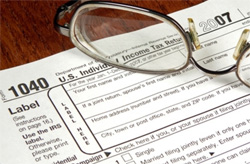What is an annuity?

An annuity is an insurance product where you receive payments for the rest of your life. You pay the insurance company a lump sum amount, and they agree to pay you periodic payment for the rest of your life. These can be called payouts. The payments you receive can be monthly, quarterly, of annual.
You can choose to start the payments immediately or at a later date which will allow the annuity to grow tax free. If you live a long life your periodic payments can exceed your purchase cost and you win. Since the periodic payments end at the end of your life you should strongly consider your life expectancy since if your expectancy is short then your periodic payments may be less than the cost of your upfront investment or cost and any unrecovered cost is usually lost.
How is an annuity taxed?
The taxation of the periodic payments that you receive will depend on your cost of the annuity contract.
The annuity payments to you are taxed only when you start to receive the monthly, quarterly or annual periodic payments. They may be fully or partially taxable.
If you have no tax cost in the annuity contract the annuity payments you receive are fully taxable as ordinary income on your tax return. When you have a cost in the annuity contract the periodic payments are partially taxable.
There are two methods to determine how much of your periodic payment is tax-free. Which method to use depends on whether the annuity is a qualified or non-qualified annuity. A qualified annuity is usually acquired through your employer. A non-qualified annuity is usually where you purchase it directly from an insurance company.
Qualified plans use the IRS Simplified Method and for nonqualified plans use the IRS General Rule. For example, under the Simplified Method if you are age 55 or under and you paid $36,000 for the annuity contract then $1,200 of the annuity is tax free for the next 30 years. The excess over $1,200 is taxable. After 30 years you have recovered your cost and the annuity payments are fully taxable.
The tax-free part of the annuity payment payouts and how annuities are taxed depends on whether you purchased the annuity with pre-tax or after-tax dollars.